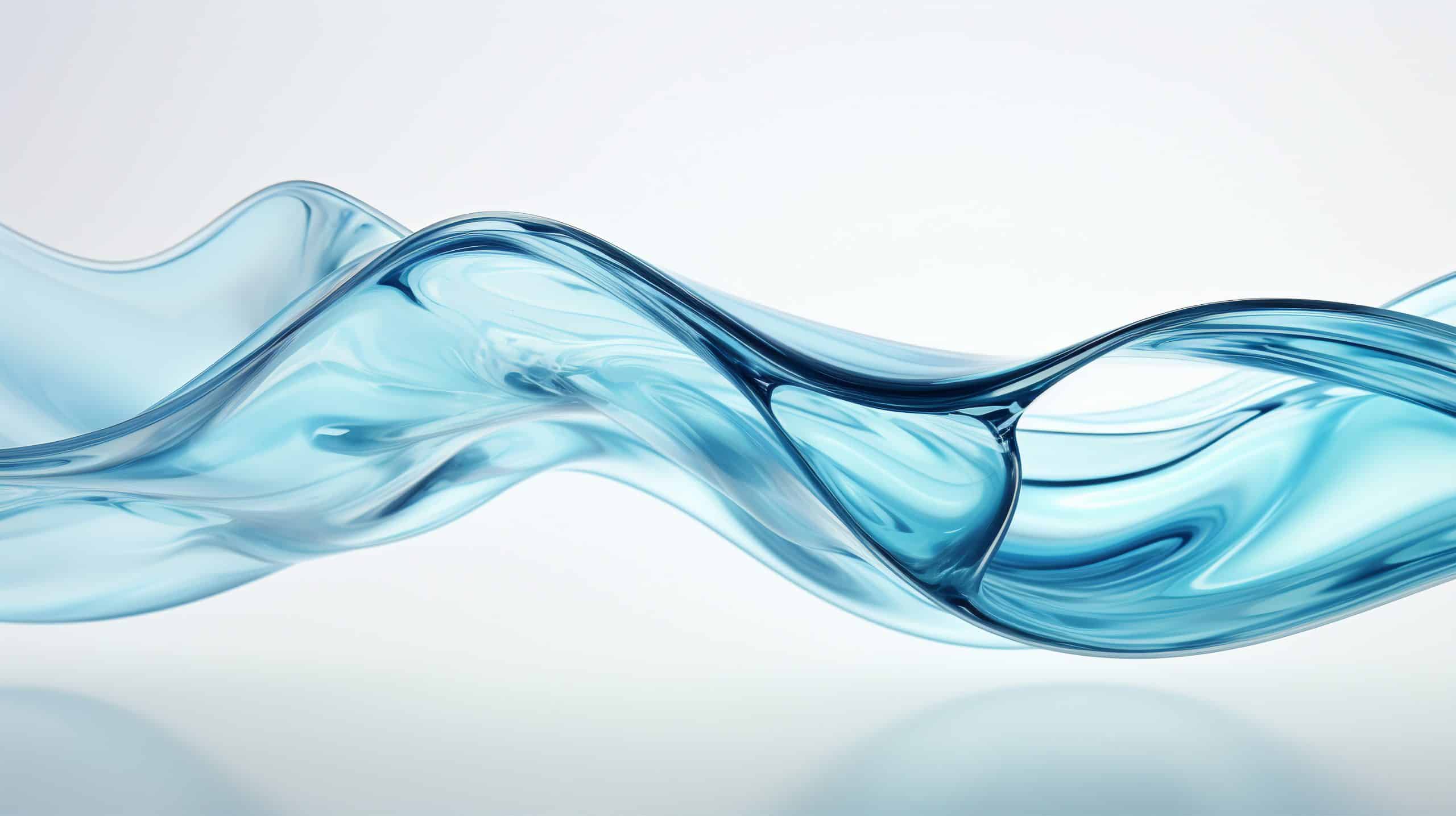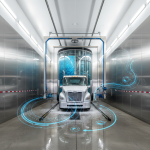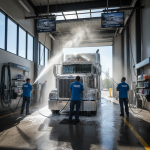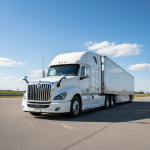Soft water is not only good for your skin and hair but also for the longevity of your car or truck wash equipment. If you’re curious about how water softeners work and why they are essential for your car or truck wash, you’ve come to the right place. In this article, we will unravel the science behind water softeners and explain their process in simple terms.
Water softeners are designed to remove the hardness minerals present in water, such as calcium and magnesium. They use a process called ion exchange to replace these minerals with sodium ions, resulting in soft water that flows through your taps. This process helps to prevent scale buildup in pipes, appliances, and fixtures, improving their efficiency and lifespan.
Understanding the inner workings of water softeners can empower you to make informed decisions about the best system for your car or truck wash needs. Whether you are looking for a portable water softener or a whole-house system, knowing how they function will help you choose the right one.
Join us as we delve into the science behind water softeners and unlock the secrets of soft, luxurious water for your vehicle wash.
What is hard water?
Hard water is water that contains high levels of dissolved minerals, primarily calcium and magnesium. These minerals are picked up as water passes through rocks and soil, and they can vary in concentration depending on the region. While hard water is generally safe to drink, it can cause a range of problems in your car or truck wash.
The problems caused by hard water
Hard water can leave behind mineral deposits, known as scale, on your customer’s vehicles. This buildup not only affects the appearance of the car or truck but also reduces the efficiency of your cleaning process. Over time, the scale can clog pipes and reduce water flow, leading to costly repairs.
In addition to scale buildup, hard water can also make it difficult to lather soap and shampoo, leaving you with a water spots on the vehicle’s finish. This can lead to unhappy customers. Furthermore, hard water can affect the performance and lifespan of your car or truck wash equipment.
What are water softeners?
Water softeners are devices that are specifically designed to remove the hardness minerals from water. They work by introducing sodium ions into the water, which replace the calcium and magnesium ions, effectively softening the water. Water softeners can be installed as either portable units or as whole-wash systems, depending on your needs.
How do water softeners work?
Water softeners use a process called ion exchange to remove the hardness minerals from water. The ion exchange takes place in a tank filled with resin beads, which are small, porous beads made of a special resin material. This resin has a negative charge, which attracts the positively charged calcium and magnesium ions in the water.
As the hard water passes through the resin beads, the calcium and magnesium ions are attracted to the resin and adhere to its surface. In exchange, sodium ions, which have a positive charge, are released into the water. The result is soft water that is free from the hardness minerals.
The ion exchange process in water softeners
The ion exchange process is the heart of water softeners. It involves two main steps: the regeneration cycle and the service cycle. During the regeneration cycle, the resin beads are cleaned and recharged with sodium ions, ready for the next cycle. The service cycle is when the water softener is actively softening the water.
To initiate the regeneration cycle, water softeners use either a timer or a metered control valve. The timer-based systems regenerate at predetermined intervals, regardless of the water usage. On the other hand, metered systems regenerate based on the amount of water used, ensuring a more efficient use of salt and water.
During the regeneration cycle, the water softener flushes a concentrated salt solution, known as brine, through the resin tank. The brine solution consists of water and salt, which is stored in a separate brine tank. As the brine passes through the resin tank, it displaces the calcium and magnesium ions, effectively cleaning the resin beads.
Once the regeneration cycle is complete, the resin beads are rinsed with fresh water to remove any remaining brine. The water softener is now ready for the service cycle, where it once again removes the hardness minerals from the water.
Types of water softeners – salt-based and salt-free
There are two main types of water softeners: salt-based and salt-free. Salt-based water softeners, also known as ion exchange water softeners, are the most common type. As described earlier, they use resin beads to remove the hardness minerals from water through the ion exchange process.
Salt-free water softeners, on the other hand, do not remove the hardness minerals from the water. Instead, they use a different technology, such as template-assisted crystallization or electromagnetic waves, to alter the structure of the minerals, preventing them from forming scale. While salt-free water softeners are effective in preventing scale buildup, they do not actually soften the water.
Benefits of using water softeners
Using water softeners offers a range of benefits for both you and your vehicle wash. First and foremost, soft water is gentler on vehicle paint. It helps to retain the natural shine from the factory, keeping it spotless and without buildup. Soft water also allows your wash detergents to lather more easily, making the entire wash process more effective and efficient.
In addition to washing benefits, water softeners also provide significant advantages for your vehicle wash. Soft water reduces scale buildup, extending the lifespan of your car and truck wash equipment. It also improves the efficiency of equipment, saving you money on energy bills. Soft water also prevents scale deposits in pipes, ensuring optimal water flow and reducing the risk of clogs and costly repairs.
Factors to consider when choosing a water softener
When choosing a water softener for your business, there are several factors to consider. First, you need to determine the size of the system you need. This depends on the hardness of your water, the number of wash bays your are operating, and your water usage. It’s essential to choose a water softener that can handle your specific needs to ensure optimal performance.
Another factor to consider is the regeneration cycle. Timer-based systems regenerate at predetermined intervals, regardless of the water usage, while metered systems regenerate based on water consumption. Metered systems are generally more efficient, as they regenerate only when necessary, reducing salt and water usage.
You should also consider the cost of maintenance and operation. Salt-based water softeners require regular replenishment of salt, while salt-free systems have lower maintenance requirements. Additionally, you need to factor in the initial installation cost and any additional plumbing modifications that may be needed.
Water softener installation and maintenance
Water softener installation is typically best left to professionals, as it involves connecting the system to your water supply and ensuring proper operation. However, if you have some plumbing experience, you may be able to install a portable water softener yourself. Make sure to follow the manufacturer’s instructions and consult a professional if needed.
Maintenance for water softeners is relatively straightforward. Salt-based systems require regular replenishment of salt, which is typically done on a monthly basis. It’s essential to monitor the salt levels to ensure optimal performance. Salt-free systems, on the other hand, have minimal maintenance requirements, typically only requiring periodic cleaning or filter replacement.
Conclusion
Water softeners play a crucial role in removing hardness minerals from water, providing you with soft, luxurious water for your vehicle wash. Understanding how water softeners work can help you make informed decisions when choosing the right system for your needs. Whether you opt for a salt-based or salt-free water softener, the benefits of soft water are undeniable. From spot-free rinses and happy customers to extended wash equipment lifespan, investing in a water softener is a wise choice for any car or truck wash business owner. So, say goodbye to scale buildup and hello to the wonders of soft water in your vehicle wash bay.




